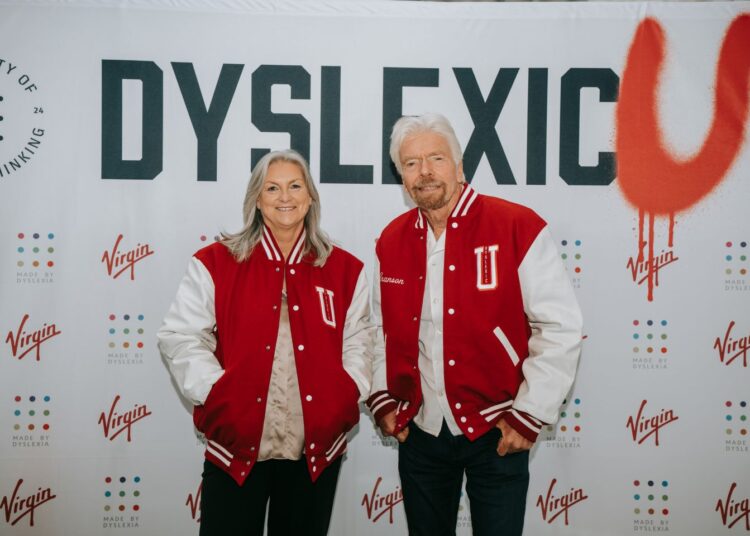On a mission to reshape education and workplace skills, Sir Richard Branson and the charity Made By Dyslexia have launched DyslexicU, an innovative, free online university designed to teach the world about dyslexic thinking.
DDB Group Melbourne, along with Adam&Eve DDB and Collider, in collaboration with Sir Richard Branson, Virgin, and Made By Dyslexia, unveiled the first-ever University of Dyslexic Thinking at the United Nations General Assembly in New York on Tuesday. Developed in collaboration with The Open University, DyslexicU an initiative envisioned by DDB Melbourne Executive Creative Director Psembi Kinstan and has been in development for two years in partnership with Made by Dyslexia. The launch follows a report highlighting that the unique abilities of dyslexics are among the most sought-after skills across all industries worldwide.
Branson, himself a dyslexic, believes that thinking differently is no longer just an asset; it is essential in modern times. Speaking at the launch, he emphasized, “Thinking differently has always been an asset, but in this new world, it’s essential… DyslexicU is free to access from all around the world.”
DyslexicU offers modules on entrepreneurship, developed in partnership with Virgin StartUp, and changemaking, in collaboration with Virgin Unite, Branson’s philanthropic arm. The aim is to leverage the inherent strengths of dyslexic thinkers, such as creative problem-solving, adaptability, and innovative thinking, to prepare them for success in every sector.
The Intelligence 5.0 report, which underpins DyslexicU, makes a powerful case for why dyslexic skills are uniquely suited for the emerging Industry 5.0, a collaborative era between human minds and machines. According to the report, the world is shifting from traditional measures of intelligence, like memorization and standardized tests, to human-centric skills that AI cannot replicate. These include creativity, communication, and lateral thinking—all areas where dyslexic individuals excel.
As AI takes over routine tasks, complex problem-solving and interpersonal skills will become even more essential. Kate Griggs, Founder of Made By Dyslexia, highlights this shift: “Problem-solving, innovation, lateral thinking, and interpersonal skills are the most sought-after skills in every job, in every sector, worldwide.”
Indeed, Randstad Enterprise’s 2024 In-Demand Skills report confirms that the most in-demand global skills today—complex problem-solving, creative thinking, and adaptability—align directly with the strengths of dyslexic thinkers.
DyslexicU’s innovative approach doesn’t just stop at offering free courses. It aims to make dyslexic learning accessible to a global audience by leveraging platforms such as TikTok, further democratizing education. As Tamara Pickett, Director of Communications at Virgin Group, put it, “The world needs Dyslexic Thinking. Today’s launch of DyslexicU is a huge step forward in repositioning Dyslexic Thinking as the world’s most aspirational skill set.”
The platform also reflects the vision of Made By Dyslexia to redefine intelligence. The Intelligence 5.0 report calls for urgent reforms in education and workplaces to shift away from outdated metrics of intelligence, such as exam scores, which traditionally disadvantage dyslexics. The report highlights that only 6% of global respondents see exam success as a valid measure of intelligence, emphasizing that the skills now needed in the workplace—creativity, emotional intelligence, and leadership—are those at which dyslexics excel.
The launch of DyslexicU represents a broader movement to shift the perception of dyslexia from a learning disability to a valuable skill set. Psembi Kinstan, Executive Creative Director at DDB Group Melbourne, underscores the importance of this initiative: “DyslexicU will continue to transform perceptions of dyslexia globally.”
Mango Melbourne General Manager, part of DDB Group Melbourne, Alex Lefley, said: “As someone proud of their Dyslexic tag, it’s been an incredible experience leading the global earned media strategy for such a fantastic and important project – the world needs more dyslexic thinking and this is an incredible first step.”








